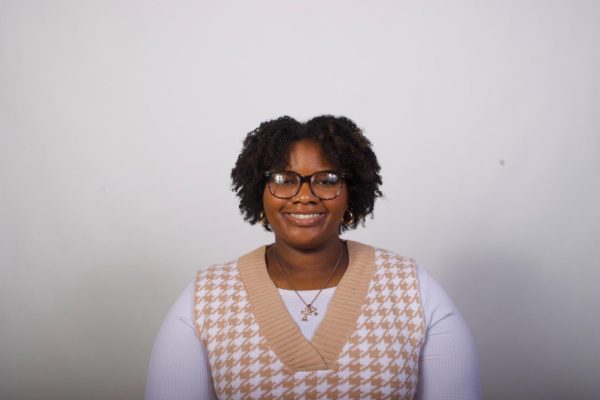Exclusionary statements are counterproductive to change
March 22, 2018
In the wake of the recent midterm election, it seems that, in an effort to inspire their peers, many took to social media to remind their friends what legislation is at stake with new and competing candidates.
Issues regarding sexual and gender diversity, education and a woman’s right to her own body are the more common conversations that arise during political discourse, and while we can all agree the polarization of issues, and further, our current two-party system is problematic, exclusionary statements in regards to an individual’s stance to an issue cloud the issues at hand.
More specifically, I wish to talk about being pro-choice. Being pro-choice means that an individual, regardless of their own gender identity, believes that those with a uterus have a right to their own reproductive health and decisions regarding fertility. The term “pro-choice” refers specifically to an individual’s right to terminate a pregnancy.
That is it. However, discourse surrounding the issue is blurred by statements such as “I am pro-choice, but…”
The “but” in these situations is irrelevant and counterproductive to the matter at hand. Being pro-choice translates to supporting an individual’s right to an abortion, and there really is no room for “but’s.” Stating that one believes in abortion, and then following the statement, “but I would never get an abortion” alienates the issue and further shames those who seek abortions.
Voting for legislation that legalizes and/or supports abortion is for the good of the public, and taking up the space to say “I’m voting for abortion because ___, even though I believe it is wrong in the case of __” erases the fact that abortion should remain legal.
The issue is that, without legislation legalizing access to affordable, safe and accessible abortions, people would be forced to either carry an unwanted pregnancy to term, or suffer the consequences of a potentially botched abortion at the hands of someone who is not qualified, and/or suffering the plethora of other consequences of a medical procedure performed in a place without proper or sterile equipment. Voting pro-choice saves lives and respects the decision of an individual, and that decision does not always mean abortion, but rather, reserving the right in the case of someone having an abortion. There is very little room for the “but’s,” as the issue applies to the population as a whole, not an individual.
I do not mean to invalidate the opinion of the individual. I recognize that voting can be an incredibly personal experience, and while I respect that, I feel that making the “but’s” known opens up spaces we have been trying to close. For example, Ohio just recently passed legislation making it illegal for someone to have an abortion if the fetus has Down syndrome. That law came from a space where enough people say, “Abortion is wrong” and “Abortion is okay, unless they are seeking an abortion because they do not wish to have a baby with Down syndrome.” Abortion, now, is an a la carte situation. Politicians in Ohio, and other states facing similar legislation, now have the ability to pick and choose when an abortion is okay and when it is not.
As a society, many put themselves on a moral pedestal and believe that their decisions are right for all, and picking and choosing when an abortion is “acceptable” is erasing the decades of hard work people have put into the individual’s right to have a safe abortion. What confuses me is that these exclusionary statements happen on both sides of the pro-choice controversy, where people who are “pro-life” support abortion in the cases of incest and rape. Abortion is rarely a single-reason issue, and even if it is, there is not enough room (or time) to have a panel of people discussing whether the fetus inside a stranger is worth “saving.”
The point of this column is not to support the termination of pregnancies of people with Down syndrome, products of incest or rape, or to say that all pregnancies are the same. My point is the opposite. Abortion is an extremely personal issue, but supporting it is not. Saying “I am pro-choice,” is all an activist has to say, as adding anything more could be damaging to the movement.
Abigail Carlin is a junior English language arts major. She can be reached at 581-2812 or at [email protected].















































